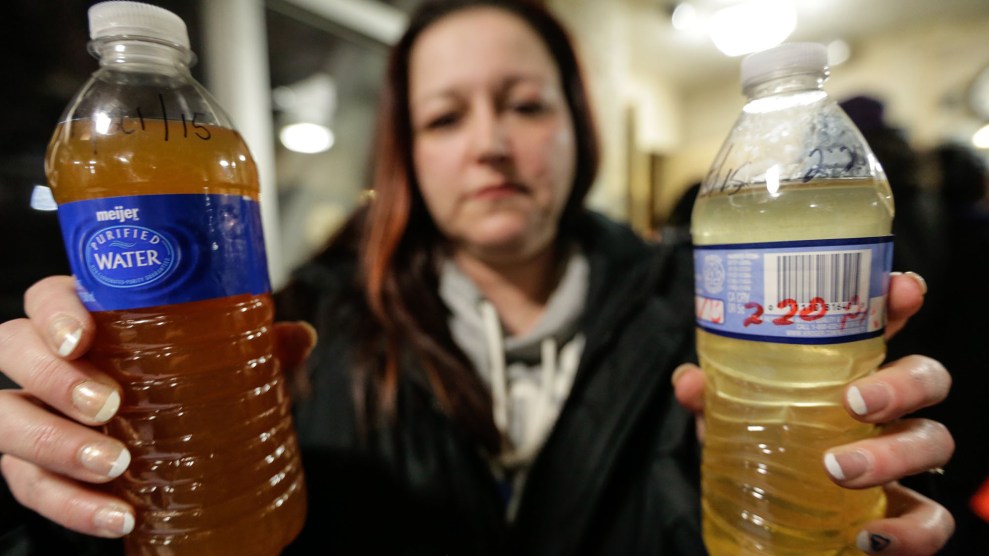
Kevin LaMarque/Reuters/ZUMA
On Tuesday, Michigan Attorney General Bill Schuette charged two former emergency managers with multiple felonies in an ongoing investigation of the dangerous levels of lead that turned up in Flint’s drinking water. Darnell Earley and Gerald Ambrose, who were tasked with overseeing the beleaguered city’s finances between 2013 and 2015, were accused of false pretenses, conspiracy to commit false pretenses, misconduct in office, and willful neglect. Schuette also charged two former Flint officials, Howard Croft and Daugherty Johnson, with false pretenses and conspiracy to commit false pretenses. If found guilty, Earley and Ambrose would face up to 46 years in prison; Croft and Johnson would face 40 years.
Schuette opened the investigation in January this year; to date, 13 former city and state officials have been charged.
“All too prevalent in this Flint Water Investigation was a priority on balance sheets and finances rather than health and safety of the citizens of Flint,” said Schuette in a statement.
The charges call into question the efficacy of the emergency manager role, which enables the governor to appoint a representative to help balance a budget of economically failing cities. Other states have similar roles, but Michigan’s is the most expansive: Emergency managers have the power to cancel city contracts, unilaterally draft policy, privatize public services, fire elected officials, and more. Flint was one of the first cities in Michigan to be assigned an emergency manager, in 2011.
In 2014, under the management of Earley, the city switched water sources to the Flint River—a cost-saving measure that would prove to be disastrous. (Earley would go on to become the emergency manager of Detroit Public Schools before stepping down in February this year.) In March 2015, as residents were reporting foul-smelling, tainted water coming from the taps, the Flint City Council voted to “do all things necessary” to switch back to Detroit’s water system—its former water source. Then-acting emergency manager Ambrose nixed the vote, calling it “incomprehensible.” By the end of the year, Flint Mayor Karen Weaver had declared a state of emergency because of children’s soaring blood lead levels.
Tuesday’s charges come just days after congressional Republicans quietly closed a yearlong investigation into the crisis, and two weeks after Congress cleared $170 million to address the Flint water crisis and help other areas with lead-tainted water. A recent Reuters investigation found nearly 3,000 areas with blood lead poisoning rates at least double those in Flint at the peak of the crisis.












